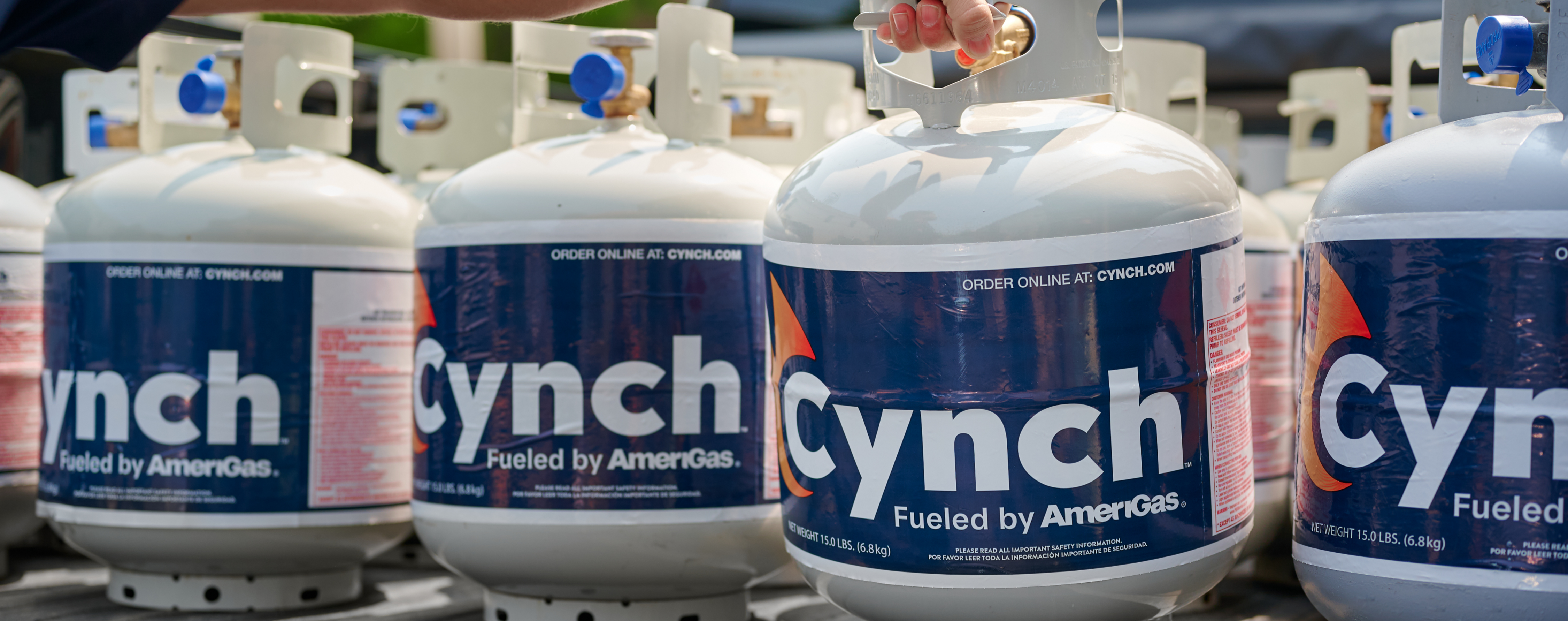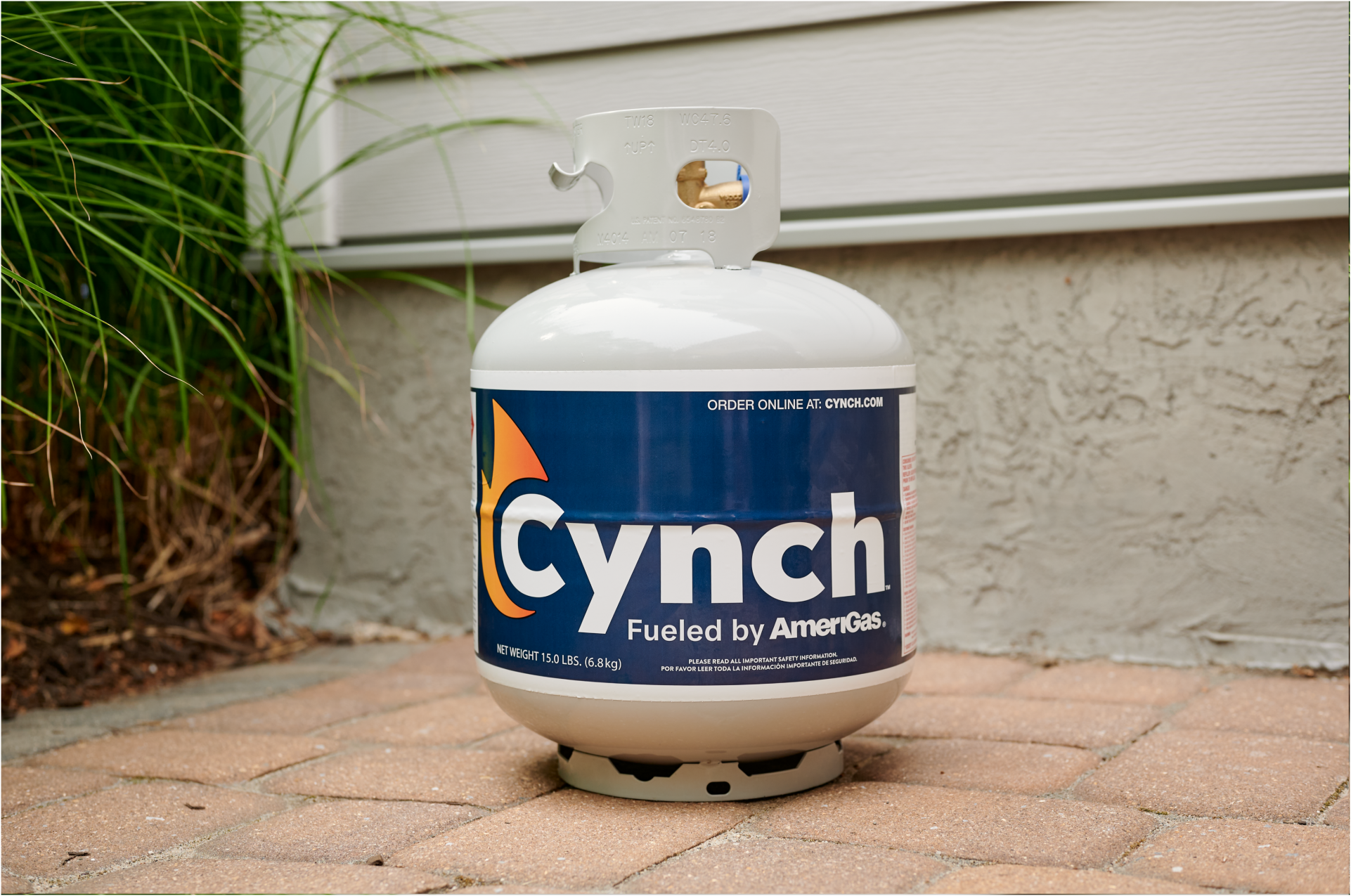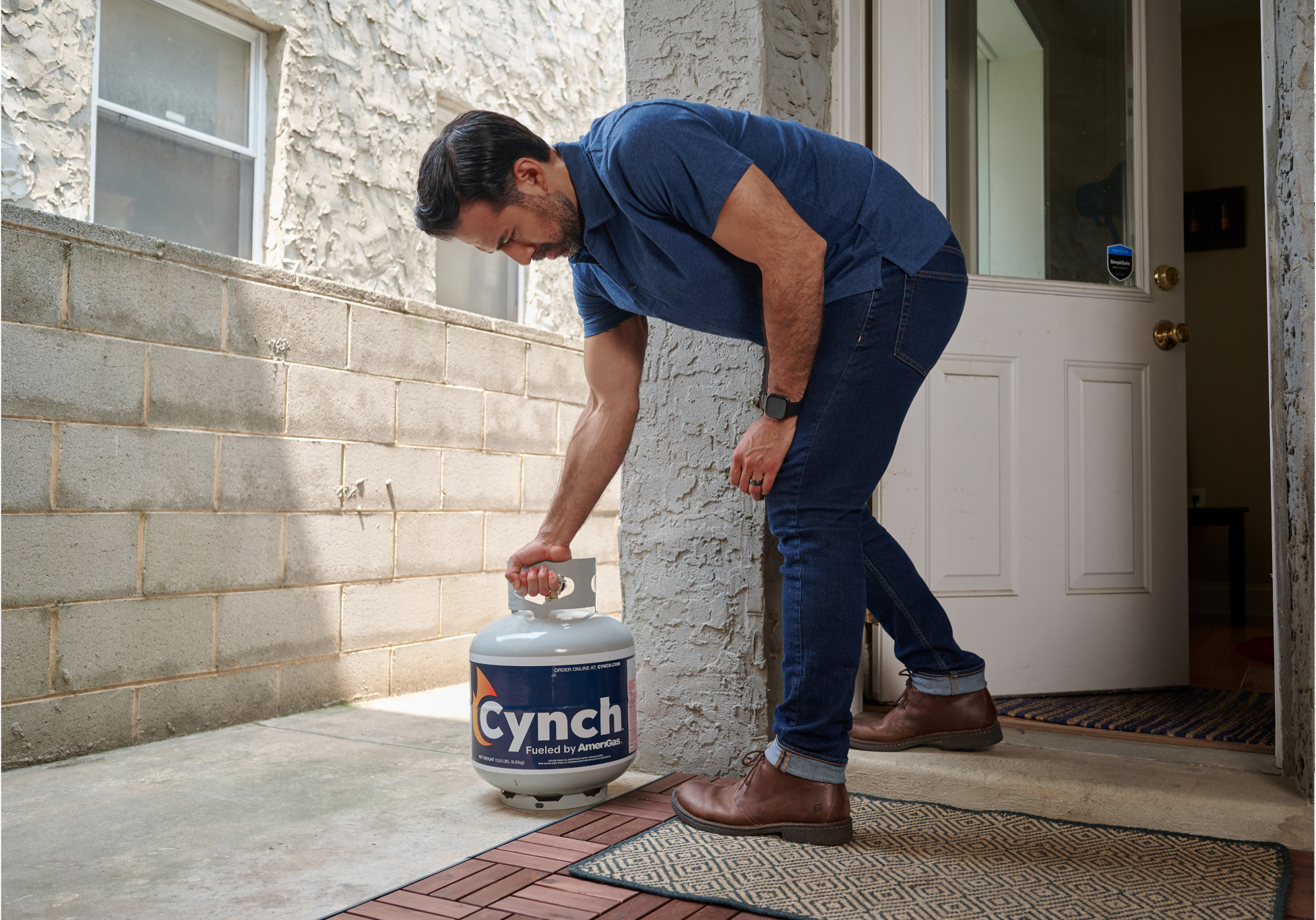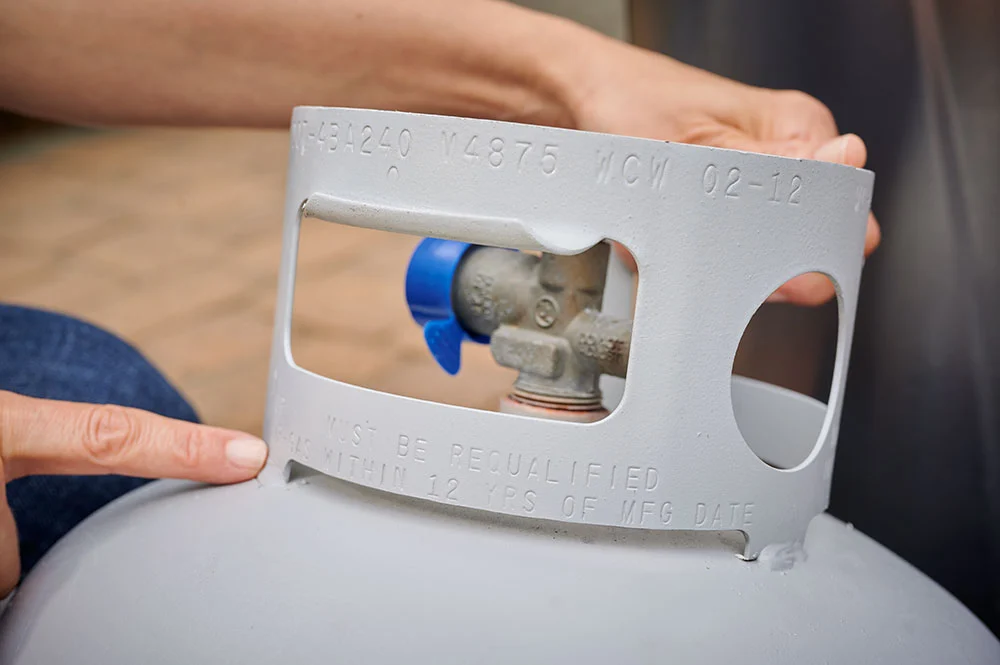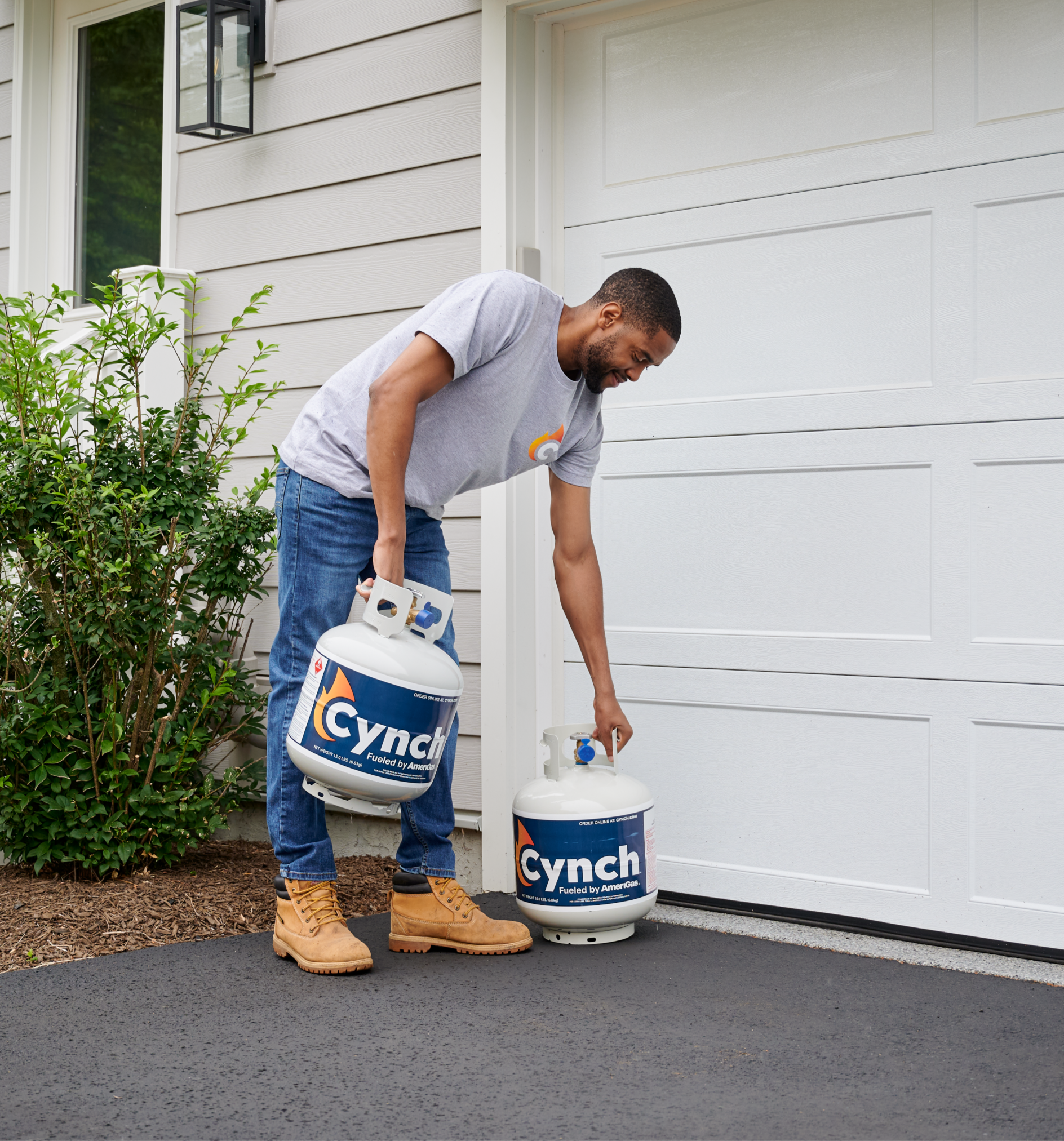Outdoor Storage
Choosing to store your propane tanks in an outdoor space is completely safe, but be mindful in choosing a location that’s away from your home. It’s up to you whether the tank is covered or uncovered, regardless of the season. Just be sure to place your cylinders on a sturdy surface, like a piece of wood or slab of concrete.
Storing propane outside in colder climates and seasons poses no issues since propane has a freezing point of – 306.4°F (-188°C). Just avoid making any barbeque plans on Neptune.
Summertime storage is easy, too. In warmer weather conditions, you’ll want to keep your tanks in a shaded area, so it isn’t exposed to direct sunlight for long periods of time. Taking this precaution will keep the propane tank at a safe temperature, not exceeding 120°F (49°C), as stated above.
